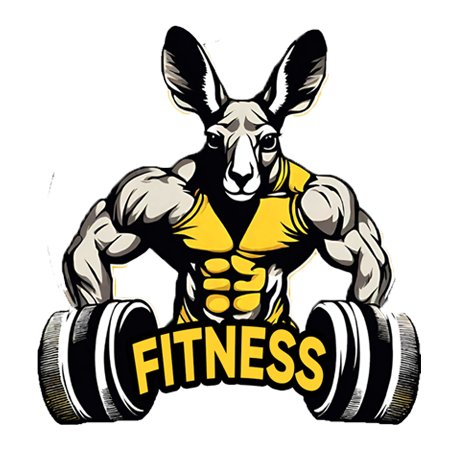
Table of Contents
ToggleIntroduction
In the pursuit of physical fitness, understanding the critical role that nutrition plays in muscle recovery and growth is paramount. Beyond the sweat and effort expended during workouts, the body’s ability to repair and build muscle relies significantly on the nutrients it receives. This article delves into the intricate relationship between nutrition and the processes of muscle recovery and growth, shedding light on the importance of a well-balanced diet in achieving optimal results.
Nutrients for Muscle Recovery
Protein
Protein stands as the cornerstone of muscle recovery. Essential for repairing damaged muscle fibers, protein-rich foods should be a staple in the diet of anyone aiming to enhance their recovery process. Quality sources, such as lean meats, fish, eggs, and plant-based options like legumes, provide the necessary amino acids crucial for rebuilding and strengthening muscles. The timing of protein intake also plays a key role, particularly in the post-exercise period when muscles are primed for repair.
Carbohydrates
While protein takes center stage, carbohydrates are equally vital for muscle recovery. Carbs serve as the body’s primary energy source, and replenishing muscle glycogen stores after a workout is crucial for optimal recovery. Emphasizing complex carbohydrates, such as whole grains, fruits, and vegetables, ensures a sustained release of energy, supporting the body’s recovery process.
Omega-3 Fatty Acids
Incorporating omega-3 fatty acids into the diet brings additional benefits to muscle recovery. Known for their anti-inflammatory properties, these essential fats, found in fatty fish, flaxseeds, and walnuts, can aid in reducing post-exercise inflammation, promoting a faster recovery process.
Nutrients for Muscle Growth
Protein Synthesis and Amino Acids
The journey towards muscle growth is intricately linked to protein synthesis and the availability of essential amino acids. These building blocks of protein are crucial for initiating muscle protein synthesis, a process essential for muscle hypertrophy. Consuming a well-balanced mix of essential amino acids, derived from both animal and plant sources, supports the body’s capacity for muscle growth.
Micronutrients
Beyond macronutrients, micronutrients also contribute to muscle health. Vitamins and minerals, such as vitamin D, calcium, and magnesium, play integral roles in bone health and muscle function. Ensuring an adequate intake of these micronutrients supports overall muscle health and contributes to sustained growth.
Hydrogen’s Role in Muscle Recovery
While often overlooked, proper hydration is a non-negotiable aspect of effective muscle recovery. Dehydration can impair muscle function and hinder the body’s ability to repair itself. Ensuring adequate fluid intake, particularly when engaging in physical activity, helps maintain electrolyte balance, facilitating optimal recovery.
Meal Timing and Composition
Importance of Post-Exercise Nutrition
The post-exercise period is a crucial window for nutrient intake. Consuming a well-balanced meal or snack within this timeframe enhances the body’s ability to recover efficiently. This is when muscles are most receptive to nutrient uptake, particularly protein and carbohydrates. A combination of the two supports muscle protein synthesis and replenishes glycogen stores, expediting the recovery process.
Balancing Macronutrients for Optimal Recovery
A balanced distribution of macronutrients is essential for sustained energy levels and recovery. Striking the right balance between proteins, carbohydrates, and fats ensures a comprehensive approach to supporting the body’s varied needs during recovery and sets the stage for subsequent muscle growth.
Individual Variations and Considerations
Nutritional needs vary from person to person, influenced by factors such as age, gender, activity level, and overall health. Tailoring nutritional strategies to individual requirements is crucial for optimizing recovery and growth. Those with specific dietary preferences or restrictions should explore alternative nutrient sources to meet their unique needs.
Supplements for Enhanced Recovery
While whole foods should be the primary source of nutrients, supplements can play a supplementary role in supporting recovery. Commonly used supplements, such as protein powders, branched-chain amino acids (BCAAs), and omega-3 supplements, can be beneficial when incorporated judiciously. However, it’s important to exercise caution and follow recommended guidelines to avoid potential side effects.
Practical Tips for Implementing Nutritional Strategies
Implementing sound nutritional strategies doesn’t have to be complex. Creating balanced post-workout meals and snacks that align with individual preferences can make the process enjoyable and sustainable. Preparing meals ahead of time ensures that nutritious options are readily available, streamlining the path to optimal muscle recovery and growth.
Conclusion
In conclusion, the interdependence of nutrition, muscle recovery, and growth emphasizes the necessity of a comprehensive dietary approach. The intricacies span from the precise timing of nutrient intake to the judicious selection of nutrient-dense foods, with each facet contributing significantly to extracting the utmost advantages from exercise. As individuals prepare to embark on their fitness endeavors, donning workout shoes and entering the gym, the acknowledgment of nutrition’s pivotal role becomes fundamental to their pursuit of not merely physical fitness but also holistic well-being. By understanding that a well-rounded diet is as vital as the workout itself, individuals empower themselves to harness the full potential of their fitness routines. This recognition transforms nutrition from a supplementary consideration to an integral component of the journey, shaping a path toward optimal health and vitality. The symbiotic relationship between dietary choices and exercise outcomes illuminates the transformative impact of a mindful approach to nutrition, fostering a harmonious integration of physical and overall well-being.
FAQs
Q1: What role does protein play in muscle recovery and growth?
A1: Protein is essential for repairing muscles and supporting growth by providing necessary amino acids.
Q2: Why are carbohydrates important for muscle recovery?
A2: Carbohydrates replenish muscle glycogen stores, offering a sustained energy source crucial for optimal recovery.
Q3: How does hydration impact muscle recovery?
A3: Proper hydration maintains electrolyte balance, aiding muscle function and supporting efficient recovery after exercise.
Q4: Are supplements necessary for muscle recovery?
A4: While whole foods are primary, supplements like protein powders can complement nutrition, but they’re not mandatory for everyone.
Q5: How can individuals tailor nutrition for their unique needs?
A5: Consider personal factors like age, activity level, and dietary preferences to customize a nutrition plan for optimal muscle recovery and growth.
